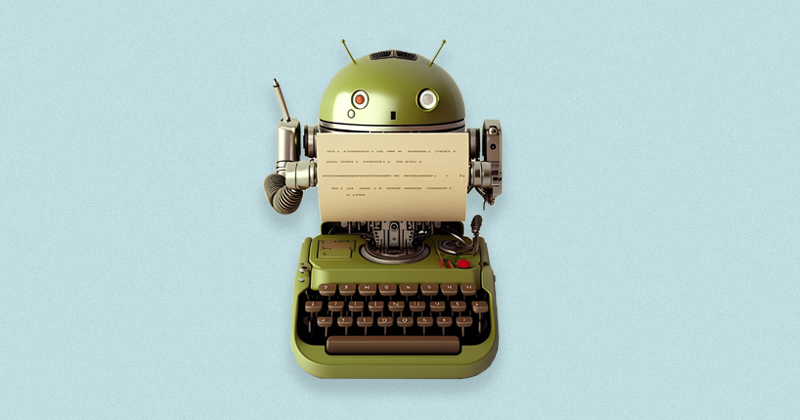
Okay, so you can write books with AI. But why bother?
As was perhaps inevitable, ChatGPT—the free chatbot created by OpenAI that has been ruffling feathers ever since it was launched in November—has now spawned “a boom in AI-written e-books on Amazon,” according to Greg Bensinger at Reuters. Bensinger counted over 200 e-books in Amazon’s Kindle store that listed ChatGPT as author or co-author, which isn’t counting the books that were created using the software without acknowledgement (an unknowable, perhaps infinite number).
Would-be author Brett Schickler told Reuters that after he learned about ChatGPT—which can instantly generate cogent blocks of text from any prompt—he “figured an opportunity had landed in his lap.”
“The idea of writing a book finally seemed possible,” he explained. “I thought ‘I can do this.'”
In “a matter of hours,” he had prompted the AI software—using inputs like “write a story about a dad teaching his son about financial literacy”—to create a 30-page children’s e-book about a squirrel who learns to save his money.
Well, hate to break it to you, buddy, but . . . you still haven’t written a book.
While this technology may be useful for lots of different things, prompting an AI to write a book is simply not the same as writing a book. I know this. Brett Schickler knows this. We all know this. It begs the question: why are people writing books with AI?
Do they think they’re going to strike it rich? Anecdotally, people with limited experience in the literary industry often seem to think that it’s lucrative in some way. Sure, for Colleen Hoover and a handful of other writers—including some self-published writers—but for most people? Beer money if you’re lucky! Better to dash those hopes right off the bat. (Admittedly, if you’re only spending “a matter of hours” on each book, there’s an argument that a pure volume business might make you some money. Apparently Schickler has made less than $100 on his book, but imagine less than $100 times more than 100!)
Is it just a vanity project—the literary equivalent of “Friday”? And if so, what kind of vanity are we satisfying here? Do you also play video games on “story mode” and then brag to all your friends that you beat them handily?
Is it for the fun of exploring a new and exciting technology? If it is, cool. But you still haven’t written a book—at least not in the traditional sense.
(There are definitely legitimate and even lovely literary uses for the software. Vauhini Vara’s essay “Ghosts” comes to mind—but “Ghosts” is an exploration of and an experiment with the generative possibilities of the technology itself, not an attempt to create a book in a matter of hours.)
I also wonder whether anyone will be interested—beyond the initial and fleeting novelty and besides formal experiments like Vara’s—in reading entire books written by AI. In my opinion, the point of reading—particularly though not exclusively fiction—is to enter someone else’s consciousness, and, not to get too corny about it, to be charmed and surprised and enriched by someone else’s imagination and intellect and perspective. In many ways it is primarily a form of connection, and even of time travel. Who wants to connect with a robot? (Yeah, yeah, the joke writes itself.)
That said, I know there are some people out there who just read for entertainment or information, and don’t have any lame romantic notions about it at all (more power to you—probably you were not only children). But even these people may not be super interested in AI books, because early reports suggest that—besides often being full of mistakes and plagiarism, which as we know, readers hate—they’re just not very good. For now, anyway! Maybe if ChatGPT got an MFA…?
Emily Temple
Emily Temple is the managing editor at Lit Hub. Her first novel, The Lightness, was published by William Morrow/HarperCollins in June 2020. You can buy it here.



















